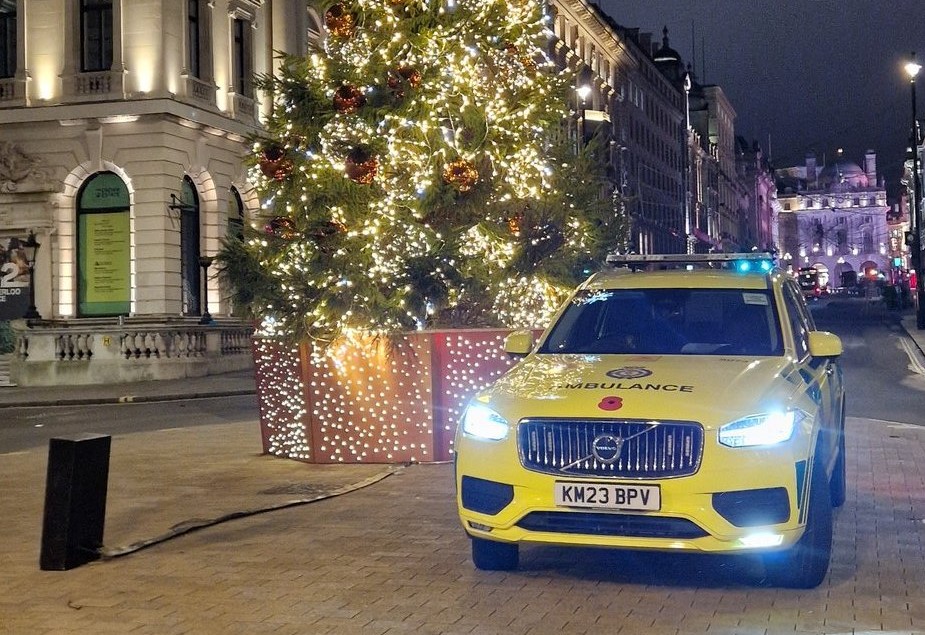“Please use 999 wisely” – medics appeal to Londoners as festive demand increases
Medics at London Ambulance Service are calling on Londoners to look after themselves over the festive period and only use 999 in a serious medical emergency as seasonal illnesses begin to drive up demand for ambulances.

As the capital gears up to celebrate Christmas and New Year with friends and colleagues, London Ambulance Service has already begun to see levels of demand rising to levels last seen during the pandemic, taking up to 7,000 999 calls daily and over 10,000 111 calls a day in the past few weeks compared with 5,500 on a typically busy day.
As a result of this increase in demand, the Trust has moved to the highest level of escalation known as Resource Escalation Plan 4. We are seeing many patients with respiratory illnesses and the number of calls involving a life-threatening emergency has risen by more than a 100 a day.
Stuart Crichton, Director of 999 Operations at London Ambulance Service, said: “We are already extremely busy as we head into winter. As Londoners enjoy the festive season we are urging everyone to be careful – every avoidable alcohol-related call we attend could take away from someone who might have a life-threatening condition.
“It’s important that Londoners use the 999 service wisely: only calling us when it’s a serious medical emergency so we can prioritise responding to the most seriously ill and injured patients.
“Please make sure you have the medication you need ahead of the long holiday weekend as some local pharmacies will have different opening hours. So if you need advice or medication from a pharmacist in London, use the NHS pharmacy finder to check which pharmacies are open near you.
“If it’s urgent, but it’s not a serious medical emergency, please consider other options such as your GP, pharmacies or NHS 111 online. NHS 111 online should be your first port of call if you’re unsure what to do or unsure whether to go to A&E.”
LAS prepares for winter ahead of time with additional ambulances and response vehicles ready to go and extra control room staff on duty across London. We also have more clinicians able to speak to patients who have called 999 to ensure they get the help they need.
The Service also manages demand using some of our specialist resources including our mental health cars, our urgent community response cars and other support vehicles out on the road throughout the city.
Stuart added: “We have increased the number of ambulances on the road and crews caring for patients by 10% compared to last year.
“This year 1,300 people will have joined London Ambulance Service, including 700 to work on the frontline, which will increase the number of call handling hours and time spent on the road.
“This increase in vehicles and staff means we will be better able to meet what we know will be a challenging winter.”
Londoners can go to an urgent treatment centre if you need urgent medical attention, but it’s not a life-threatening situation. Conditions that can be treated at an urgent treatment centre (also known as a walk-in centre or minor injury unit) include sprains, suspected broken limbs, cuts and grazes and minor scalds and burns.

Follow us on social media: